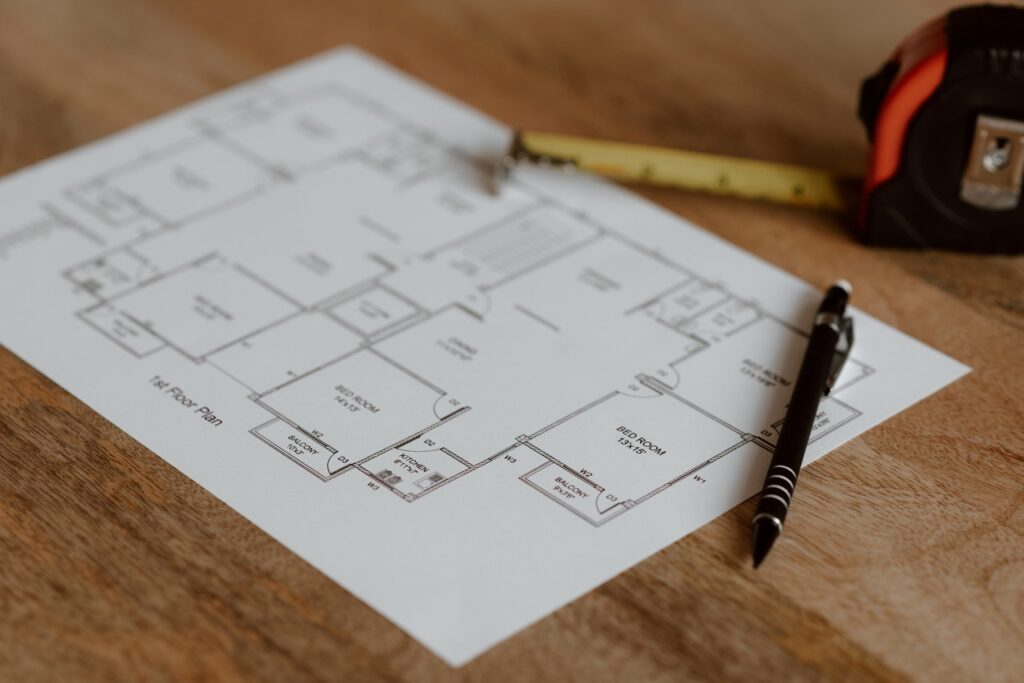
The Process Behind a Single Close Construction Loan
If you want to construct a new home, you will need to consider different financing options unless you’ve saved up enough cash to cover the total expenses for the building materials and labor. One of the more popular options for financing the construction of a new home is a construction loan, which is a type of loan that focuses specifically on the expenses pertaining to the construction process. This is a great option for many families that want to have a say in the appearance and layout of the home that they live in. By constructing a home from scratch, you’ll be able to dictate what your home looks like, what materials are used during construction, and which construction crew will be hired.
Despite the many advantages that come with constructing your own home, this process can also be highly expensive. Along with the standard construction expenses that you’ll be expected to pay for materials and labor, you’ll also need to take out a mortgage once construction on the home has been completed. Obtaining two separate loans can add substantial financial stress to the construction process. However, there is a way to simplify this process, which can be done with a single-close construction loan.
Construction loans are short-term loans that are meant to pave the way to a full mortgage loan, which means that you would typically need to obtain two loans for the construction and purchase of your new home. However, a single-close construction loan helps to eliminate the need for two loans by combining a standard construction loan with a mortgage loan. Without this type of loan being in place, you would be required to go through two separate closings.
A closing is a lengthy and time-consuming process that can also be expensive, which is why it’s important to avoid going through the process twice while investing in a new home. When you apply for a single-close construction loan, the construction loan will automatically be converted into a permanent mortgage loan once the construction process is completed. This article offers an in-depth guide to the process for obtaining a single-close construction loan.
Benefits of a California Single-Close Construction Loan

There are a number of distinct advantages that come with applying for a single-close construction loan, the primary of which is that you will only need to qualify for a loan once. Additional benefits of obtaining this loan include everything from fixed interest rates to less risk for buyers. The expense behind this loan depends on the size of the home that you’d like to build, the cost of labor, the interest rate for the loan, and the cost for materials.
The interest rate for a single-close construction loan is typically fixed, which eliminates the risk of your interest rate increasing over the life of the loan. Closing costs will also need to be factored into the total costs that you pay for the property. Since a single-close construction loan eliminates the need for two closing processes, you can expect closing costs to amount to 3-5 percent of the total loan amount.
Process of a Single-Close Construction Loan

The process of this loan can be separated into six separate steps, all of which are essential if you want the process to go smoothly. The loan process begins with the selection of a builder and ends with the start of construction. The duration of the application process can vary depending on the amount of the risk that the lender is taking on. To expedite the application process, it’s important that you provide all of the necessary documentation when you first apply for the loan. This documentation includes recent tax returns, pay stubs, a photo ID, credit history, and bank statements.
1. One Qualification Process
Among the best aspects of obtaining a single-close construction loan is that you’ll only need to go through one qualification process. With a standard construction loan, you would need to apply for a construction loan and a separate mortgage loan, the latter of which would need to be obtained once construction is nearing completion.
Instead of completing this process twice, a single-close construction loan allows you to qualify for the loan at the start of construction, after which you can focus on having your home built without needing to worry about an additional qualification process. The terms of the loan won’t expire once construction has been completed.
2. Fixed Interest Rates
While a large number of standard mortgage loans come with variable interest rates that could increase over the course of the loan, single-close construction loans are outfitted with fixed interest rates that you know won’t change. Even though variable rates have the potential to reduce and provide you with better terms, there’s always a risk that they will balloon, which would cause you to pay much more for your loan than you first expected. Having a fixed interest rate also makes it easier for you to create a budget and a comprehensive financial plan.
3. One Closing Date
A notable benefit of a single-close construction loan is that there’s only one closing date, which refers to the day when you become the legal owner of the home that’s been constructed. The closing process typically lasts for 30 days, which is just one reason why it’s better to have one closing date instead of two. A single closing date is also important because the closing process comes with closing costs. If you needed to obtain two loans, you would be required to pay closing costs on both of these loans, which could increase your expenses significantly. As mentioned earlier, the cost of closing is usually around 3-5 percent of the total loan amount.
4. Reduces the Risk for Borrowers
Constructing a new home without a single-close construction loan is highly risky for any borrower. The construction process takes a lengthy period of time to be completed. During the construction process, you may go through a change of careers or short-term cash flow problems. In this situation, you may not be approved for the mortgage loan, which is why it’s highly recommended that you seek a single-close construction loan that only requires you to be approved once. When you qualify at the beginning of the loan, you won’t need to worry about foreclosure because of brief changes in your financial situation.
5. One Appraisal Valuation
An appraisal is an integral process for the construction or purchase of any home. This process is designed to identify the value of the property. While standard construction loans are meant to eventually lead to a long-term mortgage loan, there are a variety of different situations that could place your loan at risk while you wait for your home to be constructed.
In the event that the appraised value of the constructed property is lower than anticipated, your entire financing package could be at risk. Keep in mind that the property could be appraised several times throughout the construction project if you seek a standard construction loan. On the other hand, single-close construction loans eliminate the appraisal risk by performing just one appraisal valuation before the loan closes.
6. Option to Buy a Second Home
The majority of loans don’t allow you to purchase a second home while your first home is being constructed. However, single-close construction loans offer this option if your financial situation is strong enough to support it. In the event that you want to purchase a second property that you don’t intend to use as your primary residence, you should be able to obtain a single-close construction loan that allows for this scenario.
The Process of a Single-Close Construction Loan

- Step 1: Choose your builder and eligibility – When you’re seeking a single-close construction loan, you can select your own builder. However, most lenders will have requirements for the lender that you choose. These requirements could include at least three years of constructing residential homes, at least $1 million in volume every year, and a requirement that their core business involves constructing residential homes.
- Step 2: Contract preparation – When the builder has been selected, the contract must then be prepared. The contract will cover the entirety of the construction process, which includes the timeline, what happens if the project goes over budget, and what your responsibilities are to the builder.
- Step 3: Signing the contract – When a purchase price is identified and a contract has been created, it’s time to sign the contract. The contract will then be sent to the underwriting team for the construction crew, which effectively begins the approval process for your loan.
- Step 4: Reviewing the project and loan – The underwriting department will review your loan application and begin the underwriting process. At this point, the lender will take on a certain amount of risk. Hurdles may occur during the underwriting process while the lender makes sure that the loan is a sound one.
- Step 5: Loan closes – If the loan is underwritten without issue, the loan will close once a final review has been performed on all of the financial information that you’ve submitted. This is a very straightforward process that only occurs when the lender is confident that the loan can go through.
- Step 6: Construction starts – Construction for your home must start within 30 days after the closing date. The construction crew that you’ve hired will provide you with regular updates on how construction is progressing. Construction on residential homes is usually completed in a period of six months to one year.
How to Find a One-Time or Single Construction Lender
Finding a one-time or single construction lender isn’t as easy as finding a lender for a standard mortgage. First, it’s important that you choose a lender that has experience with single-close construction loans. When considering all of your options, call reputable lenders to inquire about the availability of this type of loan. You can also seek a single-close construction loan through the government.
Some of the government-backed loan programs that accommodate one-time construction loans include FHA construction loans, VA one-time close construction loans, USDA construction loans, and Fannie Mae construction loan programs. When searching for the right lender, it’s essential that you consider experience and interest rates. While you might want to go with the lender that offers the lowest interest rates, the rest of the loan terms are also important. The interest rates may only be as low as they are because the other terms are unfavorable. Along with the FHA, VA, and USDA loans mentioned previously, you could also consider seeking a conventional loan.

Jason Somers, President & Founder of Crest Real Estate
With over 15 years of professional experience in the Los Angeles luxury real estate market, Jason Somers has the background, judgement and track record to provide an unparalleled level of real estate services. His widespread knowledge helps clients identify and acquire income producing properties and value-ad development opportunities.
Learn more about Jason Somers or contact us.



